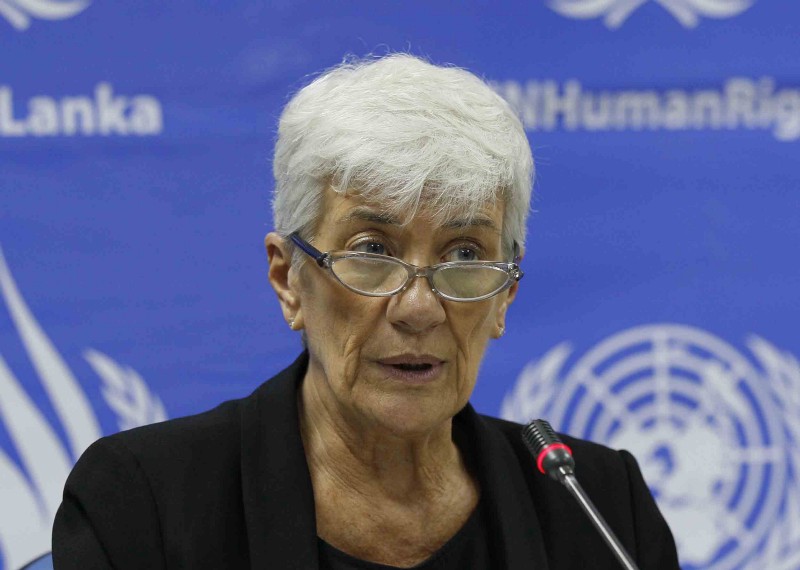Image: UN Special Rapporteurs. Mónica Pinto visited Sri Lanka in May 2016 and her report was discussed on 12th June 2017 at UNHRC 35th session.
Issuing a statement in t relation to the report prepared by the former UN Special Rapporteur on the independence of judges and lawyers, Mónica Pinto, on her mission to Sri Lanka from April 29 to May 7 last year, Global Tamil Forum (GTF) calls upon the International Community and the Government of Sri Lanka to take serious note of this important report and to be fully focussed on the need to establish impartial, credible and effective transitional justice processes with the participation of international judges to address the past comprehensively, with the aim to achieving long-lasting peace, reconciliation and prosperity for all the peoples of Sri Lanka.
The full text of the statement follows:
PRESS STATEMENT /21 June 2017, London.
Global Tamil Forum reiterates its call for the participation of international judges in the transitional justice processes following the scathing report on Sri Lankan judiciary by the UN Special Rapporteur
A report prepared by the former UN Special Rapporteur on the independence of judges and lawyers, Mónica Pinto, on her mission to Sri Lanka from April 29 to May 7 last year, tabled by the current Rapporteur, Diego García-Sayán at the 35th session of the UN Human Rights Council, was highly critical of the Sri Lankan justice system. Such scathing assessment vindicates the repeated calls by the Global Tamil Forum (GTF) on the need for the inclusion of international judges in Sri Lanka’s transitional justice processes.
Mr. García-Sayán said although the armed conflict was concluded in 2009, very deep wounds could still be seen in the judicial system. Quoting the report, he said there was a lack of equal representation of minority groups in the prosecution services and police force. “Problems related to language are very serious and have a very serious effect on justice and on the likelihood of obtaining a fair process if you belong to the Tamil community,” he said.
On the Prevention of Terrorism Act, the report points out ‘The Act, adopted in 1979, imposes severe restrictions on courts’ jurisdiction and authority to prevent abusive detention and torture and seriously undermines the fundamental right of defendants to a fair trial. The continuation of a normative framework that contributes to violations of fundamental human rights cannot be justified.’
Referring to Persisting Impunity, the report states: ‘The failure to hold perpetrators accountable for gross human rights violations, serious violations of humanitarian law and international crimes in Sri Lanka has long been documented. Furthermore, while the conflict lasted, there was virtual impunity for any abuse committed by the police or the security forces. Impunity is so widespread that it has become a normal occurrence, thereby contributing to shattering the public’s confidence in its judiciary.’
Outlining the need for Victim and Witness Protection the report stressed: ‘Victim and witness protection will continue to be a determining issue in the context of common crimes, abuses and violations committed by members of the security forces, as well as in the context of transitional justice mechanisms that have been created, such as the Office of Missing Persons, or that will be established, such as a truth-seeking mechanism or specialized court.’
Calling for the creation of meaningful and participatory transitional justice mechanisms, the report concluded ‘Building a justice system that all sectors of society will trust and be able to rely on to defend and enforce their rights will take time. Bold steps need to be taken, as a sign of the authorities’ commitment to address the atrocities of the past and, above all, the structures that allowed such atrocities to happen.’
While it is commendable on the part of the Government of Sri Lanka to have facilitated the country visit by the Special Rapporteur, it is important for Sri Lanka to reflect on the findings of the UN body. GTF calls upon the International Community and the Government of Sri Lanka to take serious note of this important report and to be fully focussed on the need to establish impartial, credible and effective transitional justice processes with the participation of international judges to address the past comprehensively, with the aim to achieving long-lasting peace, reconciliation and prosperity for all the peoples of Sri Lanka.
